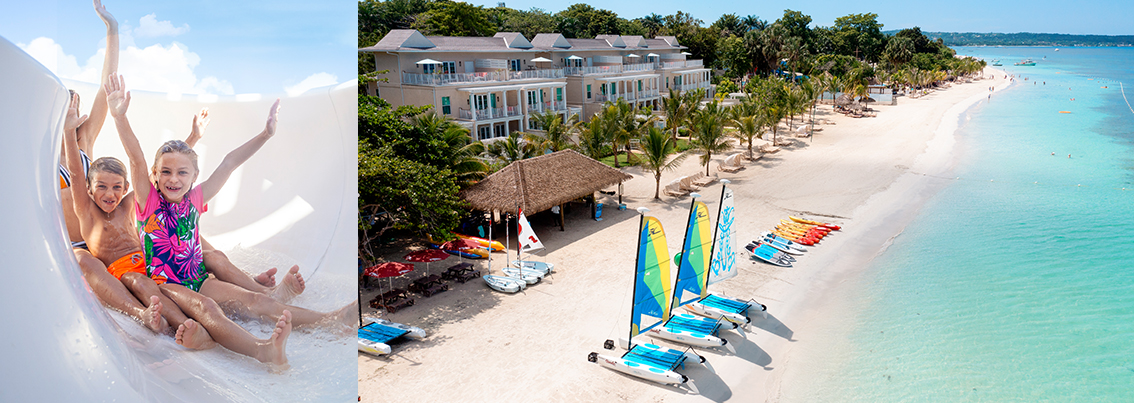
Special Needs-Friendly Resorts
On a personal level, we have worked with youth and adults with special needs for 30 years. Sadly, most resorts do not appreciate the needs of persons with special needs, nor their companions and caretakers. Finding resorts and cruises that understand and meet these needs is important to us.
What are Types of Special Needs?
“Special needs” refers to requirements or accommodations necessary for individuals with physical, developmental, or cognitive challenges to fully participate in activities or access services. This term encompasses a wide range of conditions and disabilities, including but not limited to mobility impairments, sensory impairments, intellectual disabilities, learning disabilities, and chronic health conditions.
For example, a person with a mobility impairment might require wheelchair-accessible facilities or transportation, while someone with a visual impairment might need Braille signage or audio descriptions. Individuals with autism or sensory processing disorders might benefit from quiet spaces or accommodations to manage sensory overload. Similarly, individuals with intellectual disabilities or learning differences might require additional support or modifications to participate fully in educational or recreational activities.
Providing accommodations for individuals with special needs is essential for promoting inclusivity, accessibility, and equal opportunities for all individuals to participate in society and enjoy a high quality of life. This can involve adaptations to physical environments, communication methods, or service delivery to ensure that everyone has the opportunity to fully engage and participate in activities, programs, and services.
What Makes a Resort Special-Needs Friendly?
Resorts that are best suited for persons with autism and intellectual disabilities typically offer a range of accommodations and amenities designed to cater to their unique needs. Some features to look for when selecting a resort include:
- Structured Programs: Resorts that offer structured programs or activities specifically tailored to individuals with autism and intellectual disabilities can provide a supportive and engaging environment. These programs may include sensory-friendly activities, social skills groups, and therapeutic interventions led by trained staff.
- Sensory-Friendly Spaces: Resorts with sensory-friendly spaces, such as quiet rooms or sensory rooms equipped with calming sensory stimuli, can provide a retreat for individuals who may become overwhelmed by sensory input.
- Accessibility Features: Accessibility features such as wheelchair-accessible facilities, accommodations for service animals, and sensory-friendly transportation options can enhance the overall experience for individuals with disabilities.
- Trained Staff: Resorts that have staff members trained in working with individuals with autism and intellectual disabilities can offer personalized support and assistance throughout the guest’s stay.
- Visual Supports: Visual supports such as visual schedules, picture menus, and visual aids can help individuals with autism and intellectual disabilities navigate their surroundings and understand expectations.
How do you Find Resorts That Accommodate Special Needs?
Finding resorts that cater to special needs, particularly those related to autism spectrum, requires a multi-pronged approach:
Certification Matters: Look for resorts with certifications from organizations like IBCCES (International Board of Credentialing and Continuing Education Standards) or Autism Double-Checked. These certifications demonstrate a resorts commitment to fully train staff and provide amenities designed for individuals with special needs.
Direct Resort Investigation: Whereas it certainly takes time, explore the resort’s website. Many resort websites detail accessibility features like ramps, elevators, and accessible bathrooms. Look for information on sensory-friendly areas, quiet spaces, and flexible dining options. But don’t hesitate to directly contact the resort and explain your loved one’s specific needs. Ask about staff training in autism awareness, sensory-friendly amenities like quiet rooms, low-light areas, or designated noise-free zones, and discuss any specific accommodations they can provide, such as flexible meal times or adapted activities.
Use a Trained Travel Advisor: Seek the counsel and help of a travel agent that understands the challenges, your unique situation, and can do the research for you. Travel agents at Young At Heart Destinations have over 30 years experience working with children and adults with Autism and related disorders.
Additional Resources and Posts




